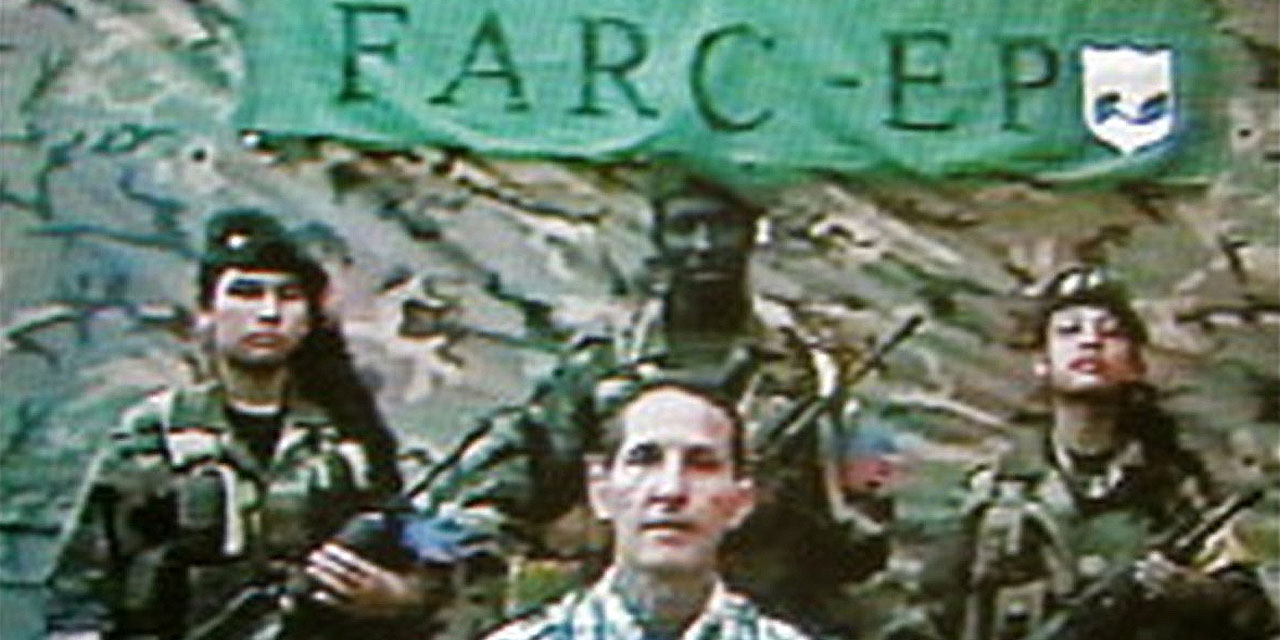Colombia’s war crimes tribunal has called 31 former guerrilla commanders of the FARC to trial over their alleged role in the kidnapping of thousands of people, the court announced Friday.
According to the prosecutor general’s office, the guerrillas are responsible for at least 8,163 of the more than 27,000 registered kidnappings registered since 1970, making the group the primary perpetrator of this war crime.
Financing a failed revolution
Over the years the FARC received $2 billion in ransom payments, according to a prosecution report on kidnapping that was prepared for the Special Jurisdiction for Peace (JEP).
The group officially ended the practice in 2012, months before formal peace talks began with the government of President Juan Manuel Santos.
The FARC’s alleged share in kidnapping
Source: Defense Ministry (alleged perpetrators were not specified before 1996)
Political representatives in court
Among the leaders that will have to appear in court are six of the 10 members of the group that are expected to take a seat in Congress on July 20 as part of the peace process that began in late 2016.
List of suspects
- Timochenko
- Pastor Alape
- Pablo Catatumbo
- Carlos Antonio Lozada
- Marco Leon Calarca
- Ivan Marquez
- Jesus Santrich
- Rodrigo Granda
- Hermes Aguilera
- Solis Almeida
- Marco Urbano
- Mauricio Jaramillo
- Joaquin Gomez
- Víctor 34
- Bertulfo Alvarez
- Romaña
- Pacho Chino
- Sargento Pascuas
- Marquetaliano
- Byron Yepes
- Andres Paris
- Fabian Ramirez
- Julian Conrado
- Aldinever
- Jimmy Guerrero
- Martin Corena
- El Paisa
- Isaias Trujillo
- Rubin / Morro
- Walter Mendoza
- Rene Emisoras
If the former commanders refuse full cooperation with the JEP or repair their victims, they could be called to trial before a civilian court and sentenced to prison for a maximum of 20 years.
If the FARC members do cooperate, the restorative justice system will not seek prison sentences, but punishments that directly benefit the victims.
It’s already an extreme trauma to lose your liberty, but in kidnapping there are additional factors: there is not the least respect for the dignity of a human being. We lived like animals, chained, with a poor diet not just in terms of nutrition but also the amount of food. We often went to bed hungry. We slept on the ground for years, without being able to clean ourselves. When we were sick and didn’t know when they might kill us or what was happening with our families you ask yourself what you have done to deserve such suffering and torment, what crime you have committed so that everything that makes you a person is taken away from you.
FARC kidnapping victim Luis Eladio Perez
Process 001
The kidnapping process will allow the public to witness the prosecution of the FARC’s leadership for the first time in history.
Despite the thousands of cases, Colombia’s notoriously ineffective justice system has only come to 600 convictions, leaving the vast majority of kidnapping victims without justice.
The majority of kidnappings, 56%, were carried out for the extortion with which the guerrillas financed their organization. In 36% people, particularly members of the security forces, were held hostage to consolidate the group’s social or territorial control. In 6% of the cases, the kidnappings were for political motives, according to the prosecution.


